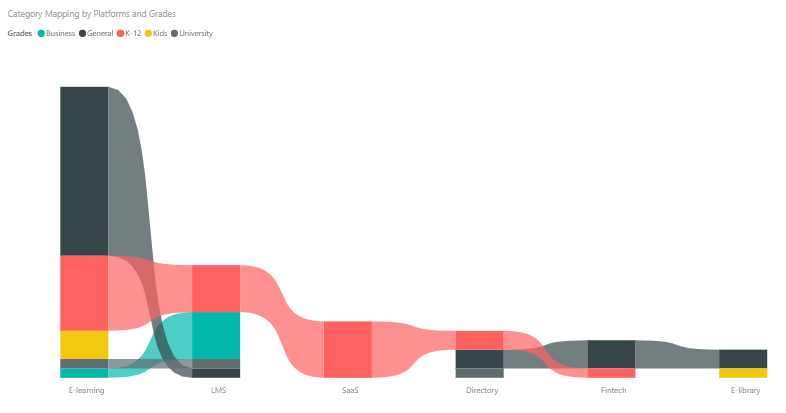Pandemic has created opportunities among the many difficulties. Edtech is one of those opportunities. Ruangguru and Zenius were two that stood out during the Covid-19 hitting Indonesia.
Between the hegemony of the two edtechs, another new player appeared. This startup is called AyoBlajar. Operating since 2018, AyoBlajar was only registered as a company in July 2019. In fact, their application was only officially published on Friday, September 4, 2020.
In the launch event, AyoBlajar Fariz Isnaini Co-Founder & CEO said, AyoBlajar is an edtech platform that focuses on junior high and high school education levels. He reasoned that the two of them were chosen because at that level student interest began to appear.
AyoBlajar platform can be accessed on Android devices and websites. Like other edtech platforms, it relies on videos as a learning resource, test material and quizzes to hone student understanding. But beyond that, there are several things that differentiate AyoBlajar from other edtechs.
First is the Live Classes feature. This feature allows user students to attend certain classes in real time. There is also one-on-one mentoring that makes it easier for students to have further discussions about the subject matter. The AyoBlajar platform also provides a progress chart feature that allows parents to map students’ learning abilities.
However, what distinguishes AyoBlajar from other platforms is their feature called the Learning Management System (LMS). This feature is made to make it easier for schools to design teaching and learning activities online. COO & Co-Founder Audy Laksmana said, with this feature the school would not find it difficult to prepare materials or exams for their students.
“That’s why we created this Learning Management System so that schools can move the teaching and learning process from offline to online,” added Audy.
Between B2B and B2C
In terms of business model, AyoBlajar adopts two types, namely B2C and B2B. LMS aimed at schools is their B2B product. AyoBlajar set various prices for these products. According to Fariz, this was done due to the different abilities of schools. “But now we don’t charge fees to most [schools],” explained Fariz.
In fact, AyoBlajar is not the only one that has LMS products in Indonesia. Gredu, for example, has introduced itself as a platform that facilitates school teaching and learning activities online since January 2020. However, Fariz claims that the LMS in AyoBlajar offers flexibility that is not found in other platforms.
“What distinguishes our LMS from others is, our LMS has been integrated with online classes so that teachers can create and manage their own classes.”
While their B2C products are all aimed at students. The model they chose was a subscription fee. The cost is also broken down into more various depending on the features required by the user.
The path taken by AyoBlajar is somewhat different from most edtech in the country. Generally, edtech that has operated previously takes a focus between B2B and B2C. Working closely with all stakeholders in the country’s education ecosystem is the key to AyoBlajar in carrying out the two business models.
“AyoBlajar strengthens collaboration with various stakeholders who have the same vision, namely to improve education in Indonesia, with these collaborations AyoBlajar can compete in both B2B and B2C sides,” explained Fariz.
Target
AyoBlajar currently claims to have 13 thousand students and 23 schools registered on their platform. A pandemic situation that requires teaching and learning activities to be carried out online has created its own opportunities for AyoBlajar.
From a funding aspect, AyoBlajar has pocketed initial funding. However, they were reluctant to mention the nominal investment and investors who participated in the funding round.
Fariz targets their users to reach 100 thousand by the end of the year. In order to pursue this big target, AyoBlajar also offers access to subscribe to their content for free for the next month.
–
Original article is in Indonesian, translated by Kristin Siagian




